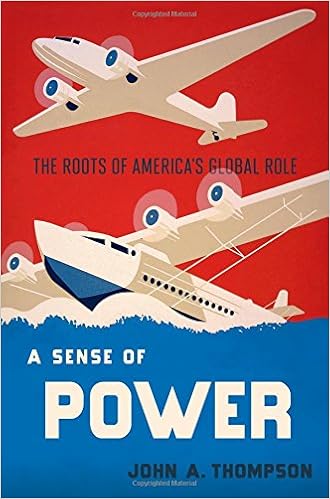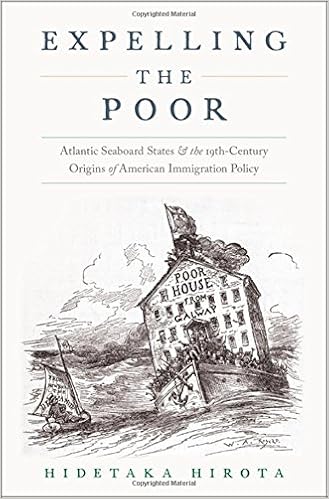
By John A. Thompson
Why has the us assumed so huge and dear a task in global affairs during the last hundred years? the 2 commonest solutions to this question are "because it may possibly" and "because it had to." Neither solution will do, in accordance with this difficult re-evaluation of ways that the US got here to imagine its worldwide position. The country's enormous fiscal assets gave it the ability to workout nice impression out of the country, yet american citizens have been lengthy reluctant to satisfy the prices of wielding that strength. Neither the country's safeguard from international assault nor its monetary future health required the fulfillment of formidable international coverage objectives.
In A experience of Power, John A. Thompson takes an extended view of America's dramatic upward thrust as a global strength, from the past due 19th century into the post–World battle II period. How, and extra importantly why, has the United States come to play this kind of dominant position in international affairs? there's, he argues, no uncomplicated solution. Thompson demanding situations traditional causes of America's involvement in global struggle I and international conflict II, seeing neither the necessities of nationwide defense nor monetary pursuits as deciding upon. He indicates how American leaders from Wilson to Truman built an ever extra capacious knowing of the nationwide curiosity, and why via the Nineteen Forties so much americans got here to help the cost tag, in blood and treasure, hooked up to strenuous efforts to form the realm. The ideals and feelings that led them to take action mirrored designated features of U.S. tradition, no longer least the power of ties to Europe. cognizance of the nation’s targeted strength fostered emotions of accountability, entitlement, and aspiration one of the humans and leaders of the United States.
This unique research demanding situations a few greatly held ideals in regards to the determinants of usa international coverage and may convey new perception to modern debates approximately no matter if the country should―or must―play so energetic an element in global politics.
Read or Download A Sense of Power: The Roots of America's Global Role PDF
Best Political History books
Political Utopias: Contemporary Debates
Political thought, from antiquity to the current, has been divided over the connection among the necessities of justice and the constraints of individuals and associations to fulfill these specifications. a few theorists carry concept of justice might be utopian or idealistic--that the derivation of the proper ideas of justice aren't take note of human and institutional obstacles.
Historians have lengthy assumed that immigration to the U.S. was once unfastened from legislation till anti-Asian racism at the West Coast prompted the creation of federal legislation to limit chinese language immigration within the Eighties. experiences of ecu immigration and govt keep an eye on at the East Coast have, in the meantime, fascinated by Ellis Island, which opened in 1892.
A Defense of Rule: Origins of Political Thought in Greece and India
At its center, politics is all approximately kin of rule. consequently one of many primary preoccupations of political concept is what it skill for humans to rule over each other or percentage in a technique of ruling. whereas political theorists are inclined to regard rule as an important evil, this ebook goals to give an explanation for how rule needn't be understood as anathema to political lifestyles.
Philosophy, Politics, Autonomy: Essays in Political Philosophy (Odéon)
Those outstanding essays contain Cornelius Castoriadis's most up-to-date contributions to philosophy, political and social thought, classical reviews, improvement idea, cultural feedback, technology, and ecology. analyzing the "co-birth" in historical Greece of philosophy and politics, Castoriadis indicates how the Greeks' radical wondering of confirmed rules and associations gave upward thrust to the "project of autonomy".
Additional resources for A Sense of Power: The Roots of America's Global Role



